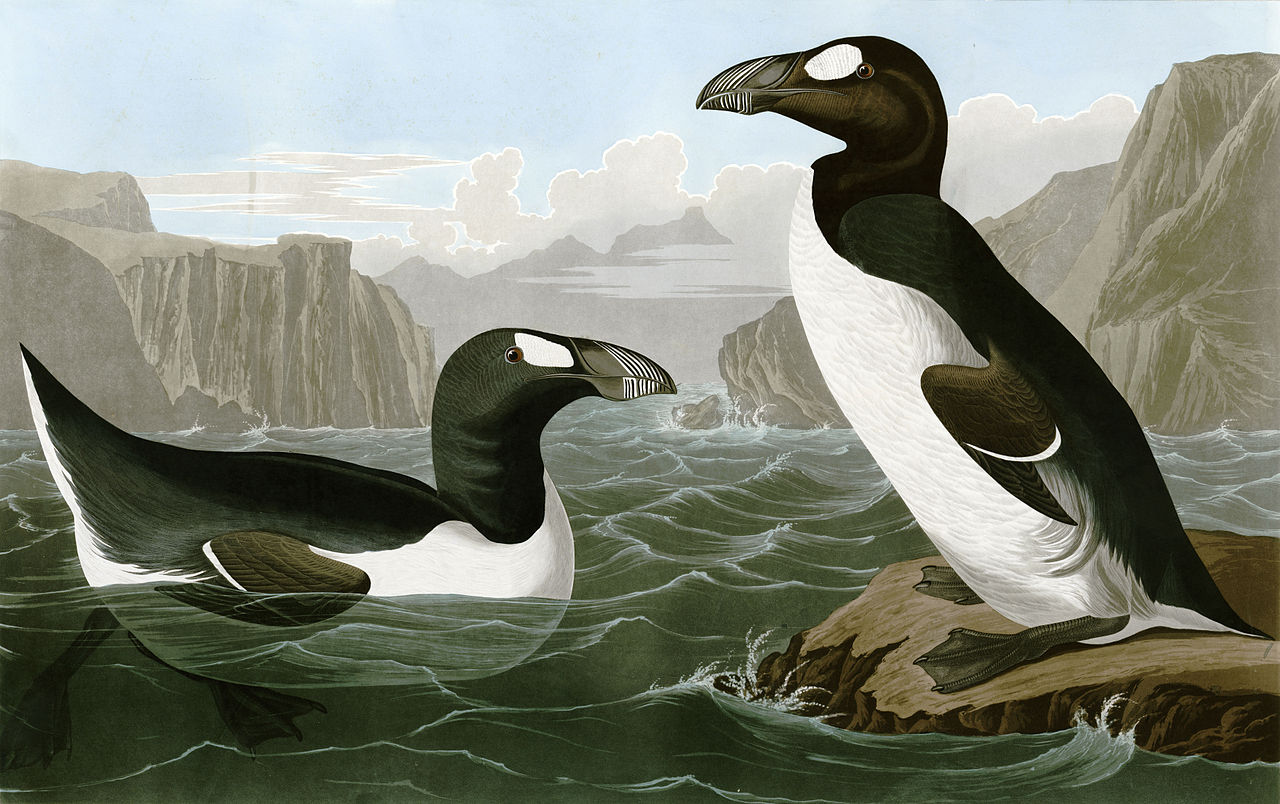
Languages
constantly shed old words and pick up new ones as their needs change,
but sometimes — like in the case of deciding what a penguin should be
called in French — a language will do both.
Top image: The Great Auk / John James Audubon, University of Pittsburgh
In response to this article on the "false friends"
that can lull language students into believing that they've found an
English loanword only to pull the rug out right from under them,
commenters began sharing some of the examples they've come across from a
variety of lexicons. Including the strange case of how French gained,
lost, and then got back the word for penguin:
Technically, "Pingouin" is Puffin and Pinguin is "Manchot". However, in Quebec, a lot of people will use " Pinguouin" for "Pinguin"The "pingouin" example is very interesting, because it really refers to an extinct animal, the Great Penguin that was overhunted into oblivion off the atlantic coast of France around 1844. When navigators first sailed the artic, they believed to have found "small penguins" and the name stuck.There used to be an other word for puffin in old french "alcot" but both the extinction of the Great Penguin and the growing influence of english caused most french people to use "pingouin" for all flightless sea birds. The term "manchot" (handless) was only introduced later by naturalists in an attempt to differenciate the two species. Nowadays the Emperor Penguin is named "Manchot empereur" in french.
source







No comments:
Post a Comment